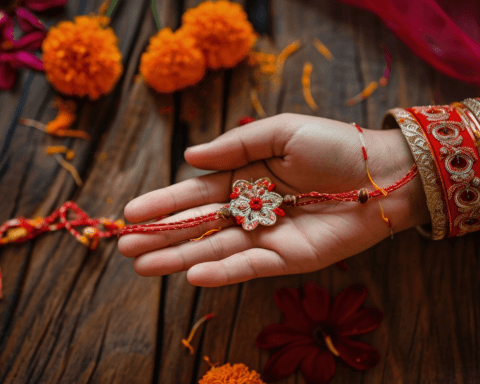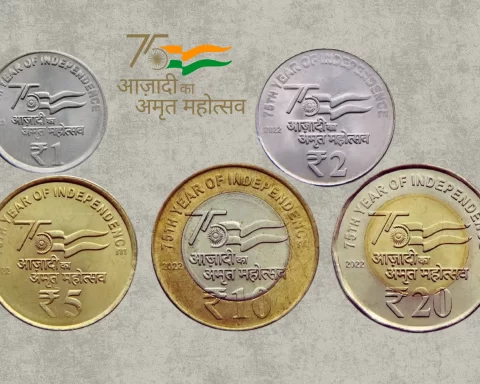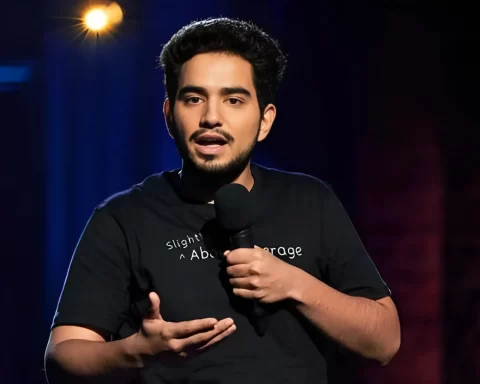Raksha Bandhan, a festival that epitomizes the bond of love and protection between siblings, is celebrated with great enthusiasm across India. The beauty of this festival lies not only in its universal appeal but also in the diverse ways it is observed across the country. From the Lumba Rakhi tradition in Rajasthan to the coastal celebrations in Maharashtra, Raksha Bandhan is a tapestry of cultural variations that reflect India’s rich heritage.
Historical and Cultural Significance
Raksha Bandhan, often referred to as the Rakhi festival, has its roots in ancient India. Historically, it is believed to have originated from the Hindu epic Mahabharata, where Draupadi tied a piece of her sari around Krishna’s wrist, symbolizing a bond of protection. Over the centuries, this simple act evolved into a grand celebration of sibling love. Today, celebrating Raksha Bandhan has become an integral part of Indian culture, transcending regional and religious boundaries.
Regional Variations in Celebrating Raksha Bandhan
India’s cultural diversity is beautifully reflected in the way Raksha Bandhan is celebrated across its various regions. Each region adds its unique flavor to the festival, making it a true reflection of India’s unity in diversity.
- North India
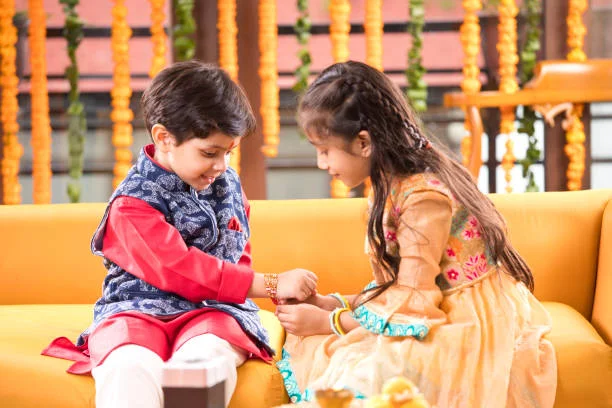
In the northern regions of India, particularly in states such as Punjab, Uttar Pradesh, and Haryana, Raksha Bandhan is celebrated with traditional enthusiasm. The day typically commences with a family gathering, where sisters prepare a thali with a Rakhi, diya (lamp), roli (red powder), and sweets. They perform aarti (a ritual of worship) and apply tilak (a sacred mark) on their brothers’ foreheads before tying the Rakhi around their brothers’ wrists. This is followed by the exchange of gifts and a grand meal featuring traditional sweets like jalebi, laddoo, and barfi. The traditions of Raksha Bandhan in North India are deeply rooted in familial ties and are often characterized by large family reunions.
Also Read – Exploring the 10 Most Famous Festivals of North East India
- West India
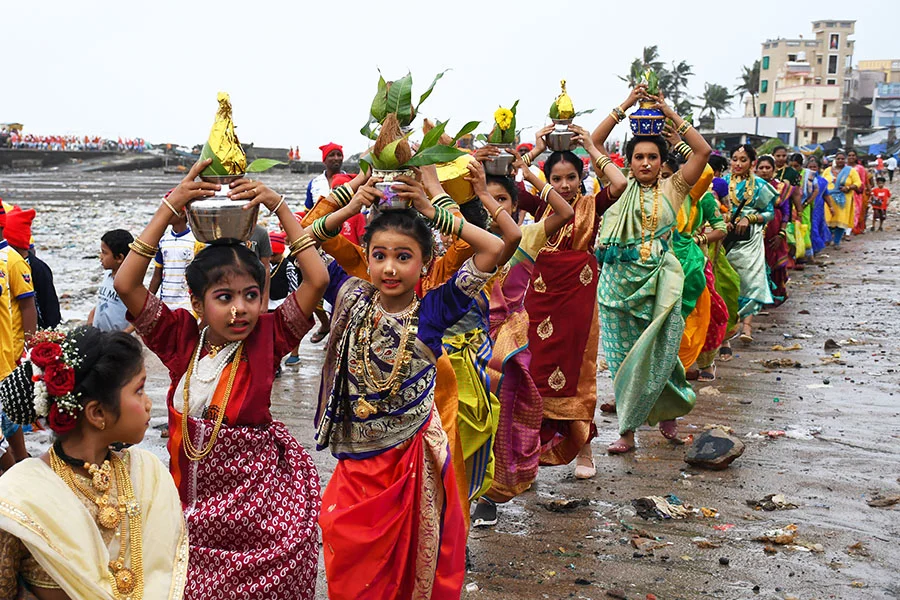
In Maharashtra, Raksha Bandhan aligns with Narali Purnima, a festival dedicated to the sea god Varuna. This distinctive celebration is especially significant among coastal communities, particularly those of fishermen. Coconuts are offered to the sea on this day to seek protection and blessings. Sisters adorn their brothers with Rakhis, and the occasion is accompanied by the preparation of traditional delicacies such as Puran Poli, a dessert flatbread filled with lentils, and jaggery. The regional variations of Raksha Bandhan in West India illustrate how the festival adjusts to local customs and traditions, blending religious ceremonies with familial affection.
- East India
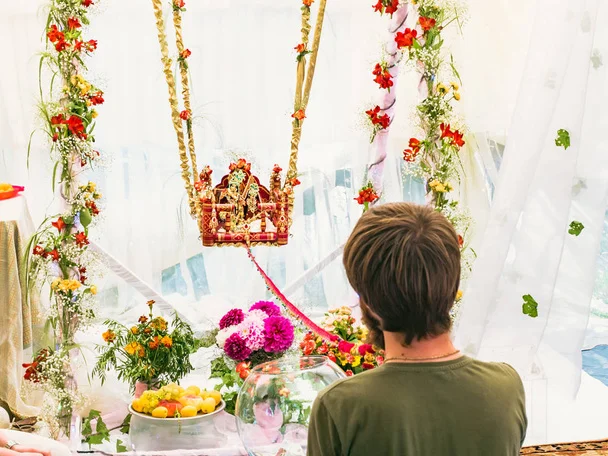
In West Bengal and Odisha, Raksha Bandhan is part of the larger festival of Jhulan Purnima, which commemorates the divine affection between Radha and Krishna. The day entails devotional singing and dancing, along with the customary Rakhi-tying ritual. Sisters fasten Rakhis to their brothers, and in certain communities, individuals also tie Rakhis to neighbors and friends, emphasizing social harmony and community ties. This observance of Raksha Bandhan in East India is a splendid fusion of spirituality and brotherhood, mirroring the region’s abundant cultural legacy.
- South India

In South India, specifically in Tamil Nadu and Andhra Pradesh, Raksha Bandhan aligns with Avani Avittam, a significant day for the Brahmin community when they change their sacred thread (yajnopavita). Although Raksha Bandhan is not as widely celebrated in the South as in the North, it is still observed with affection in many families. Sisters secure Rakhis to their brothers, and the day is commemorated with prayers and a special meal, often featuring dishes like payasam (a sweet pudding) and vada (savory fritters). The Raksha Bandhan customs in South India underscore the region’s focus on rituals and the bond between siblings.
Unique Regional Variations
India’s cultural richness is further highlighted by the unique Raksha Bandhan traditions in certain regions.
- Gujarat
In Gujarat, Pavitropana, a festival honoring Lord Shiva, aligns with Raksha Bandhan. On this day, followers go to Shiva temples to present water, milk, and bel leaves to the deity. Sisters fasten Rakhis onto their brothers, and the day revolves around praying for the family’s welfare. The diverse cultural expressions of Raksha Bandhan in Gujarat underscore the festival’s spiritual aspect and its significance in fostering familial concord.
- Rajasthan
Rajasthan celebrates Raksha Bandhan uniquely by practicing the Lumba Rakhi tradition, which involves sisters tying Rakhis to both their brothers and sisters-in-law (bhabhi). The Lumba Rakhi, meant to be worn on a bangle, represents the bond between sisters-in-law and brings an ornamental touch to the festival. This custom highlights the significance of marital bonds and family unity in Rajasthani culture.
Also Read- Do’s and Don’ts You Must Follow While Visiting Any Temple
Modern Interpretations and Urban Celebrations
In urban areas, the celebration of Raksha Bandhan has evolved to include a broader range of relationships. It is common to see friends, cousins, and even colleagues exchanging Rakhis as a symbol of their bond. The rise of e-commerce platforms has made it easier to send Rakhis and gifts across distances, ensuring that the festival’s spirit is maintained even when siblings are far apart. The modern interpretation of Raksha Bandhan reflects changing social dynamics while preserving the festival’s core values.
Shaping Modern Raksha Bandhan Celebrations
Technology and e-commerce have significantly influenced the way Raksha Bandhan is celebrated in contemporary times. With the rise of online shopping platforms, sending Rakhis and gifts across distances has become easier and more convenient. E-commerce websites offer a vast array of Rakhis, from traditional designs to personalized options, allowing sisters to choose the perfect Rakhi for their brothers. Additionally, many platforms provide gift hampers, sweets, and customized messages, enhancing the overall gifting experience.
Virtual celebrations have also become a common practice, especially in urban areas where siblings may live far apart. Video calls and social media platforms enable families to connect and celebrate together, regardless of physical distance. Digital Rakhis and virtual ceremonies allow siblings to maintain the spirit of Raksha Bandhan, even when they are miles apart.
Furthermore, technology has facilitated the creation of digital greeting cards, e-gift vouchers, and online donation options, where siblings can contribute to each other’s favorite causes in honor of the festival. These modern interpretations not only preserve the essence of Raksha Bandhan but also adapt it to the fast-paced, digitally connected world.
Explore These Amazing Rakhis For Your Brothers On Amazon
Food Traditions
No Indian festival is complete without its share of culinary delights, and Raksha Bandhan is no exception. The festival is marked by the preparation of various traditional sweets and savory dishes. In the North, sweets like gulab jamun, jalebi, and ladoos are a must, while in the West, puran poli is the star of the feast. In the South, payasam and vada are commonly prepared, adding a regional twist to the festival’s celebrations. The culinary traditions of Raksha Bandhan not only add to the festive spirit but also highlight the diverse flavors of Indian cuisine.
Conclusion
Raksha Bandhan is more than just a festival; it is a celebration of the enduring bond between siblings. From the traditional rituals in North India to the unique Lumba Rakhi tradition in Rajasthan, the festival showcases the rich cultural diversity of India. Whether celebrated with grand ceremonies or simple rituals, the essence of Raksha Bandhan remains the same—a heartfelt expression of love, protection, and unity. As we continue to honor this beautiful tradition, we also embrace the modern interpretations that keep the spirit of Raksha Bandhan alive across generations and geographies.

